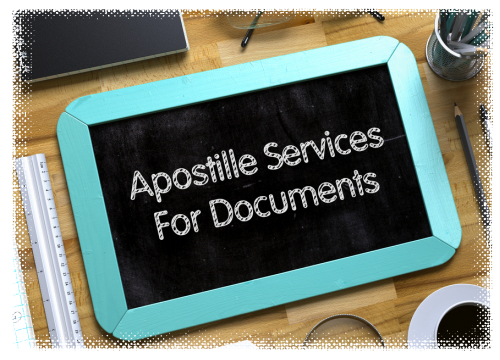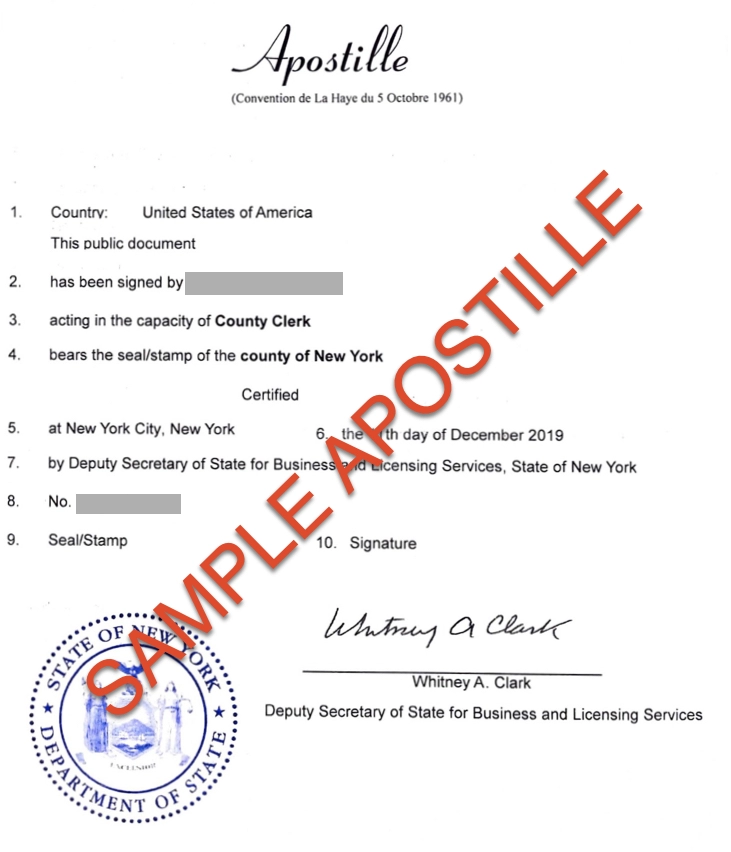Comprehending the Value of Apostille Certification and Why It Is Essential for Legal Papers
Amongst the various mechanisms available for this purpose, apostille accreditation stands out as a streamlined and generally acknowledged method. Understanding the intricacies and effects of apostille accreditation on legal papers is vital for people and companies engaging in cross-border activities.
The Definition of Apostille Qualification
Apostille accreditation is a specialized type of verification that validates the authenticity of a lawful record for worldwide usage. This qualification is crucial for guaranteeing that files coming from one country are recognized as valid in an additional, streamlining the process of cross-border transactions, legal process, or personal issues like marital relationship or adoption. The Hague Apostille Convention of 1961 established the framework for this streamlined certification process among taking part nations.
To acquire an apostille qualification, the marked authority in the paper's nation of origin must validate the paper's authenticity before connecting the apostille. As soon as affixed, the apostille makes certain that the document will certainly be accepted as legitimate in any various other nation that is component of the Apostille Convention, without the requirement for additional qualification.
Benefits of Apostille for Legal Records
The use of apostille accreditation simplifies the global acknowledgment process for legal papers, offering substantial benefits in helping with cross-border involvements and legal rules. By attaching an apostille certificate, the paper becomes readily approved in nations that are component of the Hague Apostille Convention, removing the demand for more verification.
Furthermore, apostille accreditation boosts the overall effectiveness of legal procedures by streamlining the procedure of verifying the legitimacy of a record. On the whole, the benefits of apostille qualification for legal files are instrumental in advertising smoother global involvements and guaranteeing compliance with legal needs across borders.
Apostille Vs. Legalization: Trick Distinctions
When differentiating in between the processes of apostille accreditation and legalization for legal files, it is vital to understand the key distinctions in their particular authentication techniques. An apostille is a simplified form of legalization that is approved among nations that are part of the Hague Apostille Convention.
On the other hand, legalization is a more conventional approach that includes numerous actions of authentication. It requires confirmation by various authorities, consisting of federal government departments and foreign embassies or consulates in both the providing and obtaining countries. This process can be a lot more lengthy and expensive contrasted to getting an apostille. The choice between apostille certification and legalization depends on the details demands of the nation where the paper will certainly be utilized. Understanding these distinctions is critical for making certain the correct verification of legal documents for worldwide usage.
Countries Accepting Apostille Qualification

While the Hague Apostille Convention has actually dramatically streamlined the procedure of cross-border file verification, there are still nations that are not party to the convention - more tips here Houston TX Apostille. Therefore, papers predestined for these countries may need conventional legalization procedures through consulates or embassies. It is vital for services and individuals handling worldwide transactions to verify the certain needs of the location country to ensure conformity with their lawful requirements
Actions to Obtain Apostille for Documents
To get an apostille for your records, you must begin by determining the proper releasing authority in your country. The providing authority is usually the government division in charge of validating papers, such as the Secretary of State's workplace. As soon as you have recognized the appropriate authority, the next action is to ensure that your file meets all the requirements for apostille qualification. These requirements commonly consist of having a trademark from an identified official, such as a notary public, and any kind of necessary supporting records.
After validating that your document meets the criteria, you will require to fill out an apostille application given by the releasing authority. This form will certainly call for information regarding the paper being verified and the country where it will certainly be utilized. Together with the finished application type, you will likely need to send the original file, a copy of your recognition, and any kind of applicable fees.

Conclusion
Finally, apostille qualification plays a critical role in ensuring the credibility and credibility of lawful papers for worldwide usage (Houston TX Apostille). Understanding the significance of apostille certification is necessary for individuals and companies navigating the intricacies of lawful issues and cross-border deals. By acquiring apostille accreditation, events can simplify the procedure of paper verification and authentication, inevitably conserving her latest blog time and sources in the international field
To obtain an apostille accreditation, the assigned authority in the file's country of beginning must validate the record's credibility before affixing the apostille. Once attached, the apostille makes sure that the file will certainly be accepted as valid in any various other nation that is part of the Apostille Convention, without the requirement for more certification.
By attaching an apostille certificate, the file ends up being readily accepted in nations that are component of the Hague Apostille Convention, eliminating the demand for additional verification.Identifying between apostille qualification and legalization reveals the varying acceptance of these verification approaches across various nations, with some nations particularly identifying and sticking to the apostille procedure. The apostille accreditation is extensively accepted amongst nations that are part of the Hague Apostille Convention, which presently has 118 member states.